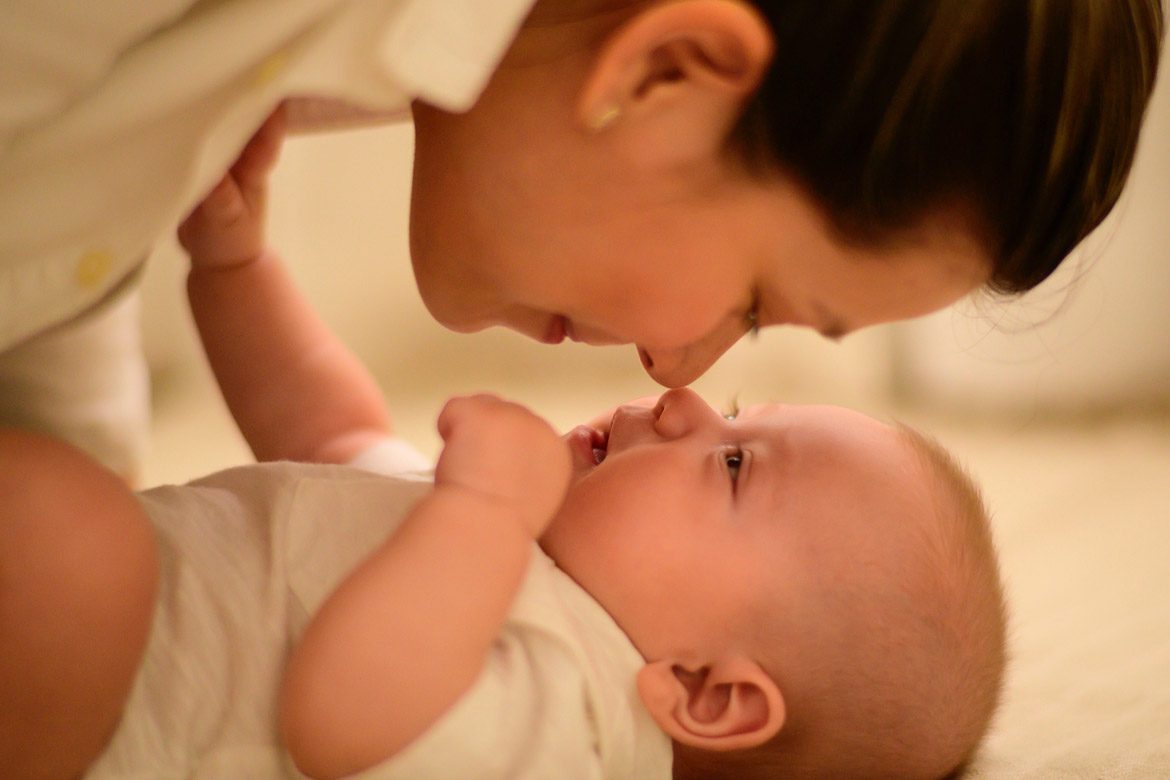By Lauren Heffernan
This blog post is inspired by the 15 (or so) incredible women that have reached out to me over the past few weeks with new babies.
I am finding that there is a common concern… they are all so worried they are not doing the right things, that they are creating bad habits, that they don’t want their babies to be dependent on them to go to sleep, that they will never be able to sleep on their own if they let them sleep in bed with them, THAT THEY ARE FAILING THEIR CHILD IN SOME WAY. I really cannot tell you how much this breaks my heart. Some of these women have babies with reflux, some have colicky babies, some have amazing little sleepers but they don’t know it because another mum told them that their baby slept through the night at two months. This blog is for all of the incredible women I have talked to who are doing THE BEST JOB, tending to their baby’s needs, and for some – surviving hours and hours of crying and are too worried to give a soother because someone told them that it was a “negative sleep association” to go to sleep while sucking.
So for all of those amazing women out there who somewhere within these first crazy six months, this post is for you…
Here are my top ten tips for the first six months.
1. KNOW THAT YOU ARE THE ONLY ONE WHO WILL EVER MAKE THE BEST DECISIONS FOR YOUR BABY
…because you are their mother. Do not listen to what anyone tells you about sleep (or anything else for that matter). Please believe that trusting your gut is always going to lead you to make the right decisions. You are not failing them… if you are feeding them, changing them, loving them and getting them at least a basic amount of sleep then you are doing great! The more you stress about “not doing the right thing” because you are reading articles about baby sleep on the internet or listing to other moms on a Facebook group, the more you are taking the joy out of the time that you do have with your baby.
I absolutely love this quote by co-sleeping expert, James McKenna:
“Do what works for your family and trust yourself to know your baby better than any external authority. You are spending the most time with your baby, and every baby is different. Infants, children, and their parents intersect in all kinds of diverse ways. Indeed, there is no template for any relationship we develop. When it comes to sleeping arrangements, many families develop and exhibit very fluid notions of where their baby ‘should’ sleep. Parents with less rigid ideas about how and where their babies should sleep are generally much happier and far less likely to be disappointed when their children cannot perform the way they are ‘supposed to’ – i.e. sleep through the night.”
Your number one job as a mother, when it comes to your baby’s sleep, is to teach them that sleep is a pleasant place to go and a safe place to remain. If you are trying to force them to sleep (because you read in a book that their wake window was meant to be 45 minutes) and they are not tired, you are teaching them that sleep is stressful. Your baby mirrors back all of your emotions. If you are frustrated, they are frustrated. Follow your instincts, trust your gut and you will always know what to do.
2. DO WHATEVER YOU HAVE TO DO TO GET THEM TO SLEEP.
It is really important to not get caught up in too many “sleep dos and dont’s” for the first few months. For the first three months especially, you really only need to be feeding, changing and back down to sleep. For those of you with fussy/extremely alert/high needs/reflux babies, you know so well that sleep is a challenge – do whatever you have to do! And along those same lines…
3. THERE ARE NO NEGATIVE SLEEP ASSOCIATIONS… NOTHING IS WRONG WITH CO-SLEEPING/BREASTFEEDING TO SLEEP/USING A PACIFIER, ETC.
Please breastfeed to sleep, please use a pacifier (once breastfeeding has been established) if that helps, please rock your four-month-old to sleep if it helps them to relax, please use the carrier or the stroller and walk your baby to sleep. Yes… I am a sleep coach and I am telling you to do all the things you heard were “bad” or “negative”. This is how babies want to go to sleep. Eventually they will learn to do it on their own but for now, help them… they are sooooo little.
This is how babies want to go to sleep. Eventually they will learn to do it on their own but for now, help them… they are sooooo little.
I always hear this term “negative sleep association” and it frustrates me. We ALL have associations with going to sleep. We may use white noise, we may read a book first, we may have a specific set of sheets that we like, some people look at their phones before bed (this one is really not great for your melatonin production). There is nothing negative about needing something to help us relax into sleep. If you aren’t planning on staying in their room, and they don’t know that you leave and come back (mentioned how stressful this is for a baby in my blog post on self-soothing), it is more than fair that they have an association with going to sleep. If they have a particular association that you are not enjoying, remember that YOU are the one that built that association into the routine.
When rocking them to sleep is no longer something you want to do because it is taking an hour, then change it (if it is taking that long then it likely is not working for them either). Yes, this will be met with some resistance but if you are gentle about the transition and give your little one time to adjust, then the resistance will be minimal. If your child loves sleeping on you during the day and it is no longer working for you because you have things that you would like to do (LIKE TAKE A SHOWER – a luxury no first-time mother thought she would go days without), then maybe let them fall asleep on you and work on the transfer. Wait until they are in a deep sleep (their body will eventually go limp and they will stop twitching and moving), and try putting them in the bassinet feet first and slowly lay them down. This will remove the feeling of falling that can sometimes wake them up. In our comprehensive online sleep and breastfeeding course we give lots of strategies for helping with this.
4. IF YOUR BABY IS WAKING EVERY THREE HOURS AT NIGHT… THEY ARE NORMAL!
I wrote about this in another blog post so I will add it here:
Newborns have two sleep states: active sleep (which is similar to adults’ REM sleep) and quiet sleep (similar to our non-REM sleep). We now know that active sleep is necessary in order to keep babies from dying of SIDS (Sudden Infant Death Syndrome). Babies spend more time in active sleep from 2-6 am. During this time, they are much more likely to wake if they are hungry, cold, wet or NOT BREATHING (which again, is so important). Their sleep cycles are actually shorter than ours (lasting only 50-60 minutes) and therefore they can experience a partial arousal every hour or so. There is a biological reason for the waking: it is for survival – in order for children to grow, they need to eat and therefore need to wake to eat. If a child is too cold or too hot, they need to wake to let mum know. If a child isn’t breathing, they need to wake. Anything that forces a child to sleep too deep, too soon, is dangerous. Active sleep also has other benefits, it is thought to be smart sleep because the brain isn’t resting, it increases the blood flow to the brain and is thought to be responsible for more rapid brain growth. The point of the little rant is that children SHOULD be waking at night – in order for them to survive.
5. KEEP YOUR BABY CLOSE.
This is true both at night and during the day. There really is such a push to have your baby in his/her own sleep space. It is important to note that the Canadian Pediatric Association recommends room sharing for the first six months in order to reduce the risk of SIDS. There is absolutely no need to rush baby into their own crib in their own room. If they are still waking several times at night and you are exhausted – co-sleep (I always have to say that I am not allowed to promote bed-sharing so by co-sleeping, I mean room sharing).You will get the extra sleep you need and your baby will get the closeness they love. As I mentioned above, there is nothing wrong with this… I promise that if you co-sleep, your child will still be able to go to school on their own and will grow up to be a strong INDEPENDENT person.
Keeping baby close during the day is also important. If they want to nap on you… go for it! They are babies – they want to be close. I cannot tell you how many women I work with who don’t hold their babies for more than an hour a day because they are worried that they are “spoiling” them. You cannot spoil a baby by snuggling them. Really look at the amount of time you are holding them… Often times it is easy to get caught up in the daily tasks (diaper changes, tummy time, swing, toys, etc.) and when you really look at the total amount of time you spent holding them, it is very little. They NEED this closeness and even better, if you can keep them skin-to-skin you will be satisfying their need for closeness.
I cannot tell you how many women I work with who don’t hold their babies for more than an hour a day because they are worried that they are “spoiling” them. You cannot spoil a baby by snuggling them.
Remember that in order for a child to become independent, they must first be securely attached. Babies need physical proximity, sensing the person they are attached to through smell, sight, and sound. Their needs can be summarized as proximity, protection, predictability, and play. They also need a parent to respond sensitively and consistently when they signal. The biggest predictor of how well a child turns out is that they have a secure relationship with at least one primary caregiver.
I do think that the biggest frustration around keeping babies close is the fact that:
a) Our expectations don’t meet reality. If someone prepared us prenatally for what life would look like after having a baby, I think we would be a lot more open to accepting the first year. If you knew that you would be up all night parenting, and that your baby would spend all day sleeping on you or near you, and that you were not going to have time to clean the house or do laundry and that it would be REALLY HARD, then we wouldn’t be so frustrated when this became our reality. No one tells you how isolating it feels to be home all day with a baby glued to your chest.
b) That our culture no longer supports the new mother. We don’t have the village and the tribe that once helped a mother raise her baby. More and more women are expected to do it all without any help. Some families I have met have the mother working part-time in the first year and still trying to meet the needs of her baby and keep a clean home and put a meal on the table. Some of my clients in the United States are going back to work at three months and trying to find a way to pump enough milk for their baby, find childcare for their baby and then manage all of the emotion that comes along with being separated from a brand new baby.











